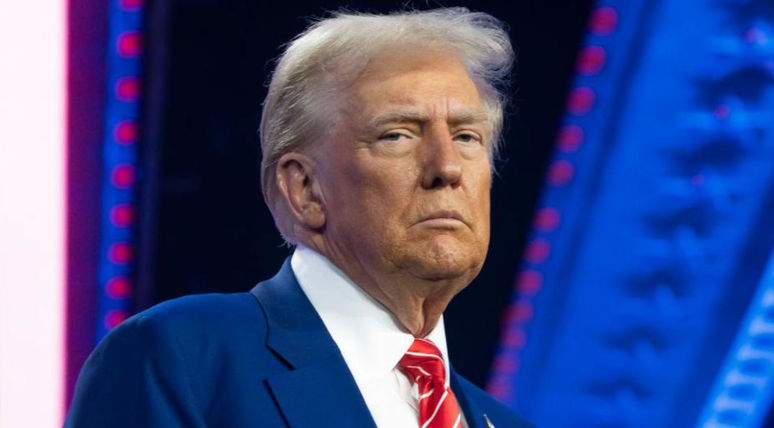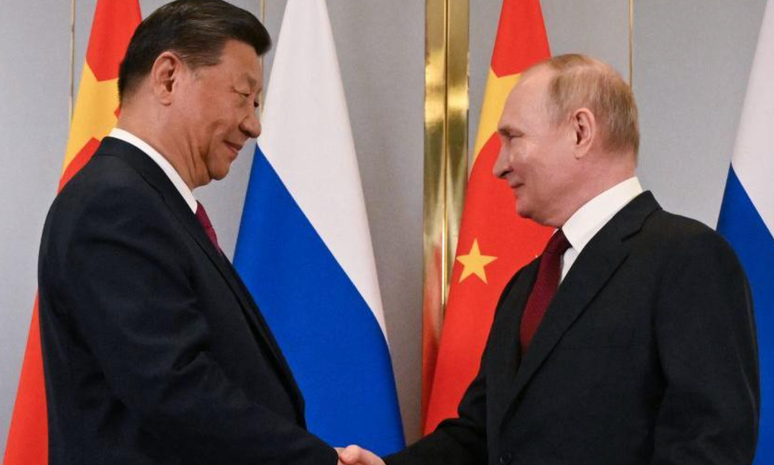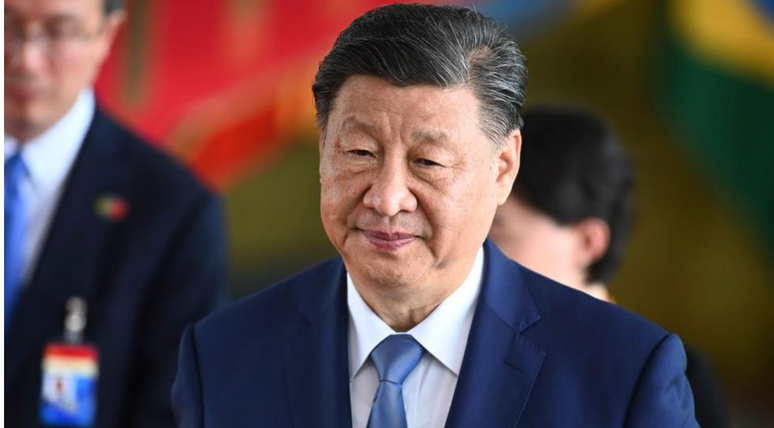While his government faced economic problems domestically, internationally it faced the complexities of its alliance with Russia.
2024 has been a complicated year for China.
While his government faced economic problems domestically, internationally it faced the complexities of its alliance with Russia.
And while China continues to play an important role in the global economy, five areas could derail its plans through 2025.
1. A renewed rivalry with the United States

The most obvious concern for Beijing will be the resumption of an ultra-aggressive American policy towards China after Donald Trump takes office in January.
Trump has already threatened China and other nations with 60% tariffs, suggesting a continuation of the ongoing trade war launched during his previous presidency.
A more contentious relationship with the United States will pose a major challenge to China, but Beijing is not unprepared, as it has learned from the previous US trade war.
This can be seen in the fact that Chinese companies such as Huawei have sought to reduce their dependence on US markets and technologies, while expanding into other fields.
Likewise, China has been more willing to use punitive measures against the United States, as demonstrated recently by restrictions on the export of rare earth elements (used in batteries and catalytic converters).
As a result, Beijing is in a better position to wage a trade war than in 2017.
2. Global technology wars

While the tariffs will undoubtedly get most of the attention, another battle could rage over China’s technological development, which poses a notable challenge to U.S. trade supremacy.
Technology has become an increasingly crucial element in China’s plans as Beijing seeks to boost employment and production in this sector, in part by increasing its exports.
Likewise, limiting this sector has become a priority for the United States, as demonstrated by its efforts to limit Chinese access to semiconductor technology, a key battlefront.
In addition to being a competition to master key technologies, it is also a competition to define technological standards.
This is demonstrated by what has been called the “Beijing effect,” in which China aims to set standards for digital infrastructure in the same way the European Union (EU) has done for data management and privacy through GDPR (General Data Protection Regulation) legislation.
This move could give China strategic leadership in the world of technology.
3. EU Rates

China has an equally complicated trade conflict with Europe, which has taken the form of a series of retaliatory tariffs: Beijing has imposed import tariffs on French cognac, for example, in response to EU restrictions on vehicle imports Chinese electricity providers in the bloc’s member states. . These tariffs come at a time when China has begun to make inroads into technologies that were previously the exclusive domain of other nations.
A trade war with the EU, combined with recent discussions about expanding NATO’s role in Asia, could create headaches for Beijing, especially if it leads to greater alignment between Brussels and Washington. But Trump’s established antagonism towards the EU could work in China’s favor if it means the European bloc is looking for other partners.
4. The alliance with Russia

Russia has apparently become increasingly vital to China as a source of natural resources and markets, while China is an important source of economic support for Moscow.
However, this support negatively affected China’s relations with European countries, some of which saw Beijing as a facilitator of Russia’s war in Ukraine.
Likewise, Russia’s invasion of Ukraine and the ongoing war could remain a useful distraction for Beijing, drawing U.S. attention away from China.
Trump’s proposed peace plan for the war in Ukraine, if successful, could allow the United States to refocus on China. The resolution of this conflict could also provide a path to rapprochement between Washington and Moscow, which would go against Beijing.
5. Conflicts in the Middle East

An emerging source of concern for China is the severe instability in the Middle East.
As in the case of Russia, the region has become an important source of resources and markets for Beijing, as demonstrated by the Zhuhai air event, in which regional nations were major buyers of Chinese weapons.
Another concern for Beijing has been the possibility of a regional conflict between Iran and Israel, the former being an important source of oil for China.
In the event of an armed conflict, these supplies could be interrupted, if not cut, creating further economic problems for Beijing.
The resurgence of the civil war in Syria has also highlighted an area of concern for President Xi Jinping.
Chinese Uyghurs (a predominantly Muslim ethnic group) were involved in the forces that overthrew President Bashar al-Assad, primarily as part of the Turkestan Islamic Party (TIP).
Some TIP members have threatened to use weapons acquired in Syria in the long battle for an independent state in China’s Xinjiang region, where the Uyghurs are based.
In recent years, Xi’s forces have rounded up about a million Uyghurs, locked them in detention camps and pursued a policy of intensive re-education and surveillance that has drawn international criticism for its tactics and authoritarianism.
While all these factors suggest that China will face a difficult 2025, there are also signs that Beijing is preparing to mitigate them. In particular, China will study the sanctions regime implemented by the West against Russia, which would likely be used against China in the event of a conflict over Taiwan.
Ultimately, what happens in 2025 will be crucial for Beijing to decide whether it needs to create new allies, develop new markets and create new economic forces in technology.
*Tom Harper is Professor of International Relations at the University of East London.
*This article was published on the site The conversation and is reproduced under a Creative Commons license. Click Here to read the original version.
Source: Terra
Rose James is a Gossipify movie and series reviewer known for her in-depth analysis and unique perspective on the latest releases. With a background in film studies, she provides engaging and informative reviews, and keeps readers up to date with industry trends and emerging talents.






